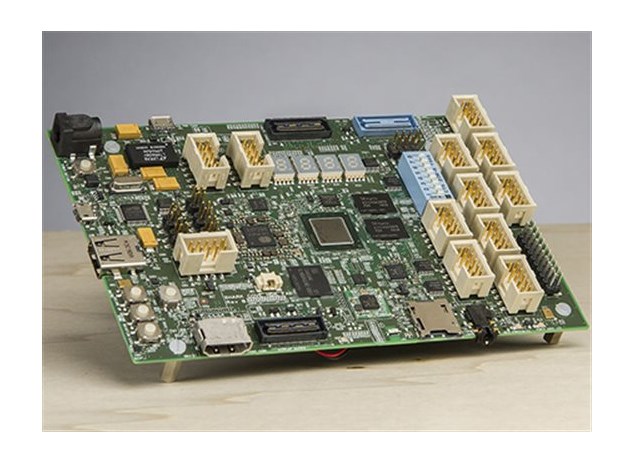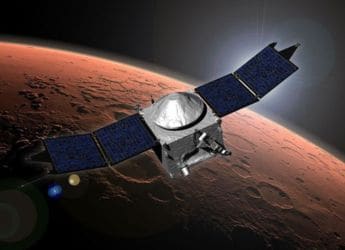- Home
- Laptops
- Laptops News
- Microsoft Announces Raspberry Pi Like x86 Development Board for Windows
Microsoft Announces Raspberry Pi-Like x86 Development Board for Windows
By NDTV Correspondent | Updated: 29 July 2014 12:50 IST

Click Here to Add Gadgets360 As A Trusted Source

Advertisement
Microsoft apparently wants to grab a piece of the growing market for affordable development boards used by students, enthusiasts, engineers and hobby inventors. The new Sharks Cove product, announced jointly by Microsoft and Intel, is a $299 (approximately Rs. 18,000) x86 Atom-based development board will facilitate development of drivers, software and apps for portable devices based on Intel processors that run Windows as well as Android.
In a post on its Windows Hardware and Driver Development Blog as reported by Ars Technica, Microsoft describes Sharks Cove as ideal for both independent hardware vendors and enthusiasts. The cost includes a Windows 8.1 license and additional utilities. This is still far more than the cost of ARM-based Arduino and Raspberry Pi boards, which have become popular with hobbyists, makers and inventors. Raspberry Pi models, for example costs $25 and $35 (approximately Rs. 1,500 and Rs. 2,100) although they are aimed at different audiences.
Microsoft, Intel and CircuitCo have also set up a dedicated website for Sharks Cove, which will host documentation, offer downloads, and be a source of news as well as venue for discussions and community interactions.
The Sharks Cove board includes an Intel Atom Z3735G processor, which has four cores running at up to 1.8GHz and integated Intel HD Graphics. There's 1GB of DDR3L RAM and a 16GB eMMC for storage. The board includes tablet-specific hardware controls such as volume, rotation lock and home, as well as connectivity in the form of Ethernet, USB, HDMI, sensors, and MIPI pins for display and camera interfaces. There's also a microSD card slot, 3.5mm audio jack and microUSB for debugging.
The board itself measures 10.16x15.24cm. It is available for preorder from Mouser Electronics.
Boards such as the Raspberry Pi and Arduino have become popular but are based on the low-powered ARM architecture. Intel also sells a $79 (approximately Rs. 4,750) x86-based Galileo development board, which is aimed at educational environments and hobbyist innovators, and has announced a much smaller Edison board as well.
In a post on its Windows Hardware and Driver Development Blog as reported by Ars Technica, Microsoft describes Sharks Cove as ideal for both independent hardware vendors and enthusiasts. The cost includes a Windows 8.1 license and additional utilities. This is still far more than the cost of ARM-based Arduino and Raspberry Pi boards, which have become popular with hobbyists, makers and inventors. Raspberry Pi models, for example costs $25 and $35 (approximately Rs. 1,500 and Rs. 2,100) although they are aimed at different audiences.
Microsoft, Intel and CircuitCo have also set up a dedicated website for Sharks Cove, which will host documentation, offer downloads, and be a source of news as well as venue for discussions and community interactions.
The Sharks Cove board includes an Intel Atom Z3735G processor, which has four cores running at up to 1.8GHz and integated Intel HD Graphics. There's 1GB of DDR3L RAM and a 16GB eMMC for storage. The board includes tablet-specific hardware controls such as volume, rotation lock and home, as well as connectivity in the form of Ethernet, USB, HDMI, sensors, and MIPI pins for display and camera interfaces. There's also a microSD card slot, 3.5mm audio jack and microUSB for debugging.
The board itself measures 10.16x15.24cm. It is available for preorder from Mouser Electronics.
Boards such as the Raspberry Pi and Arduino have become popular but are based on the low-powered ARM architecture. Intel also sells a $79 (approximately Rs. 4,750) x86-based Galileo development board, which is aimed at educational environments and hobbyist innovators, and has announced a much smaller Edison board as well.
Comments
Get your daily dose of tech news, reviews, and insights, in under 80 characters on Gadgets 360 Turbo. Connect with fellow tech lovers on our Forum. Follow us on X, Facebook, WhatsApp, Threads and Google News for instant updates. Catch all the action on our YouTube channel.
Further reading:
Intel, MSDN, Microsoft, Raspberry Pi, Sharks Cove, developer board, developer kit, maker, x86
Related Stories
Popular on Gadgets
- Samsung Galaxy Unpacked 2025
- ChatGPT
- Redmi Note 14 Pro+
- iPhone 16
- Apple Vision Pro
- Oneplus 12
- OnePlus Nord CE 3 Lite 5G
- iPhone 13
- Xiaomi 14 Pro
- Oppo Find N3
- Tecno Spark Go (2023)
- Realme V30
- Best Phones Under 25000
- Samsung Galaxy S24 Series
- Cryptocurrency
- iQoo 12
- Samsung Galaxy S24 Ultra
- Giottus
- Samsung Galaxy Z Flip 5
- Apple 'Scary Fast'
- Housefull 5
- GoPro Hero 12 Black Review
- Invincible Season 2
- JioGlass
- HD Ready TV
- Laptop Under 50000
- Smartwatch Under 10000
- Latest Mobile Phones
- Compare Phones
Latest Gadgets
- Realme Neo 8
- OPPO Reno 15 FS
- Red Magic 11 Air
- Honor Magic 8 RSR Porsche Design
- Honor Magic 8 Pro Air
- Infinix Note Edge
- Lava Blaze Duo 3
- Tecno Spark Go 3
- HP HyperX Omen 15
- Acer Chromebook 311 (2026)
- Lenovo Idea Tab Plus
- Realme Pad 3
- HMD Watch P1
- HMD Watch X1
- Haier H5E Series
- Acerpure Nitro Z Series 100-inch QLED TV
- Asus ROG Ally
- Nintendo Switch Lite
- Haier 1.6 Ton 5 Star Inverter Split AC (HSU19G-MZAID5BN-INV)
- Haier 1.6 Ton 5 Star Inverter Split AC (HSU19G-MZAIM5BN-INV)
© Copyright Red Pixels Ventures Limited 2026. All rights reserved.

















